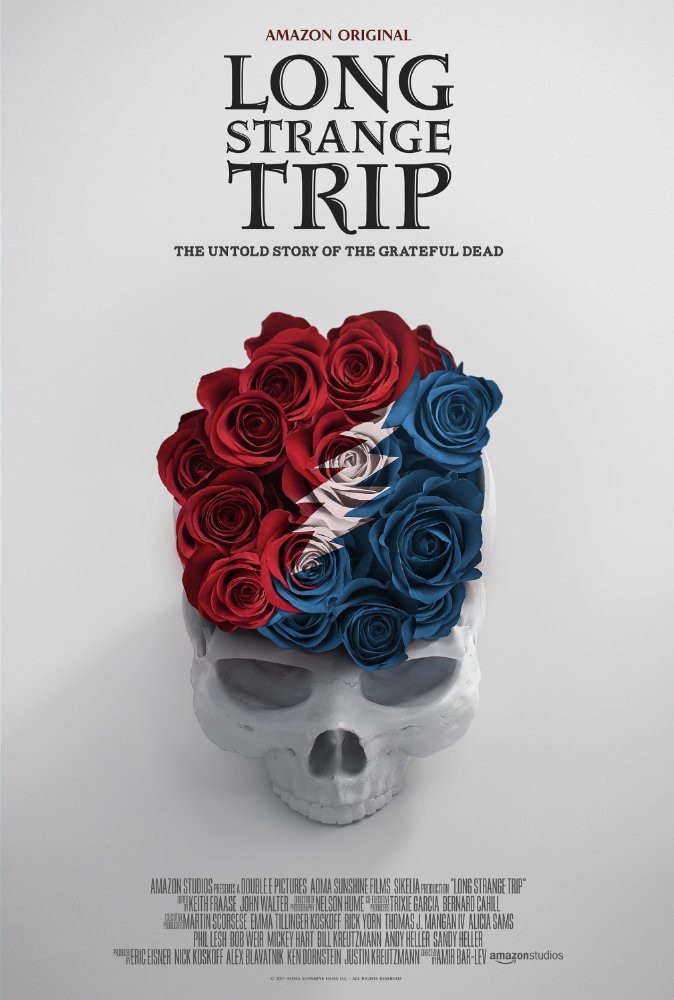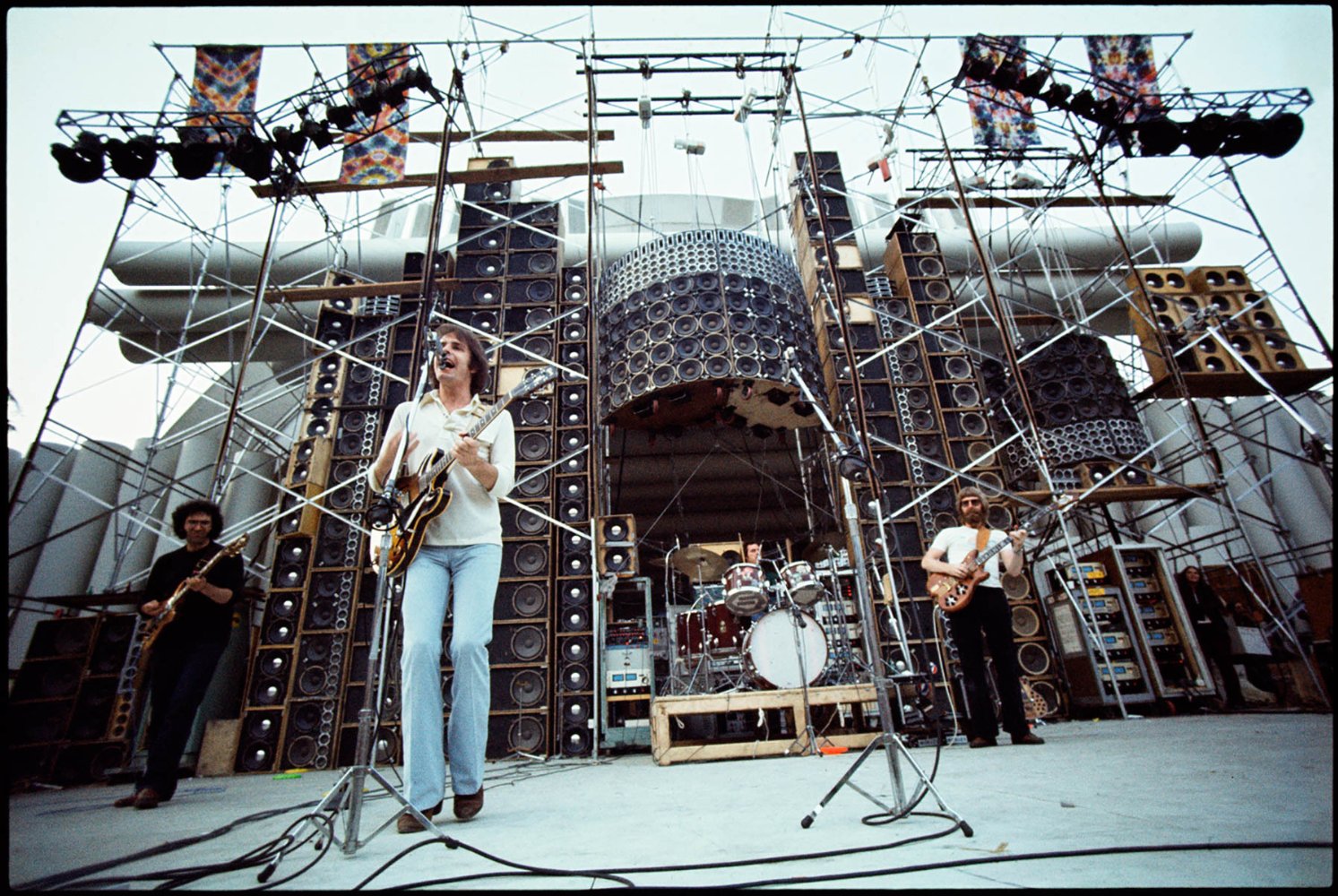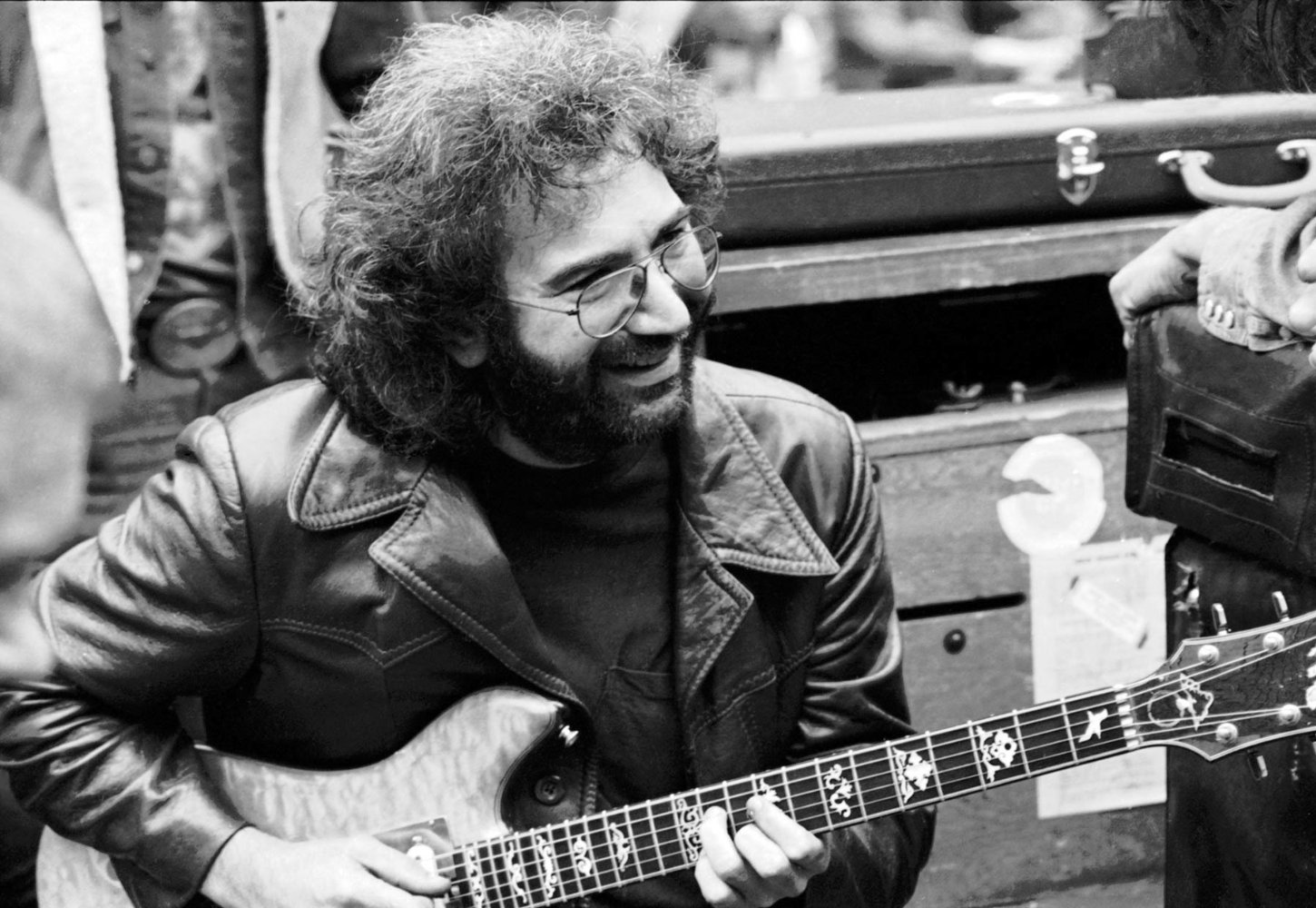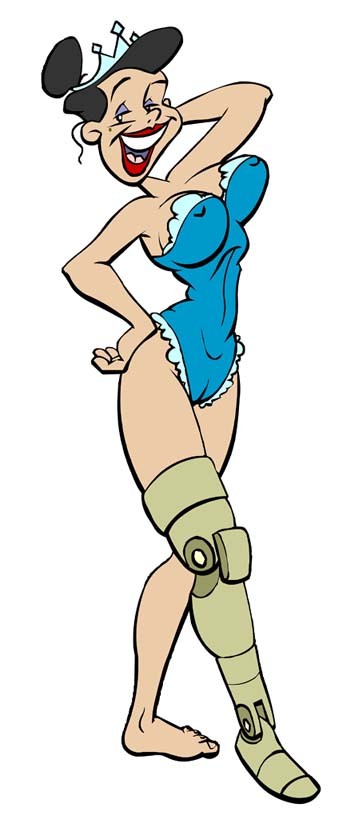
Obviously Amir Bar-Lev's epic documentary film LONG STRANGE TRIP is required viewing for Dead Heads, however even casual fans will be simply amazed by the fantastically comprehensive love letter to the legendary jam band. While the almost-four-hour running time may seem daunting at first, there truly is not one frame of the film that isn't essential. Bar-Lev does an admirable job capturing the true essence and intent of the renegade musicians utilizing an incredible amount of glorious archival footage paired with current interviews of surviving members. Though LONG STRANGE TRIP isn't necessarily breaking the documentary mold, the compelling and delightfully exhaustive biopic will most definitely be on the shelf of any respectable Dead Head.
At SXSW 2017 I had the great opportunity to sit down with director Amir Bar-Lev and talk about his sweeping rockumentary. I wish I had more time to talk with him, but I hope you enjoy our brief chat about the band and the doc ahead of the film's theatrical release on May 25 in select cities. LONG STRANGE TRIP will also debut on Amazon Prime Video June 2, so be on the lookout!
Annette Kellerman: Hey Amir! So nice to meet you. So how was your first SXSW screening of LONG STRANGE TRIP?

AK: Speaking of that kind of footage, is there an archive already? How did you amass all the archival footage and find all of these hidden gems? They were pretty well documented, yet you found a ton of stuff I'd never seen before.
ABL: The interesting thing is there was a funny dynamic all along between a band that was committed to the ephemeral moment, a band that never likes to play the same thing twice, and a band that was fundamentally about the experience of being in a room listening to live music. So much so, there's a great story about a sound recordist who abandoned his post during Europe '72 and Jerry shot him a look from the stage. In that moment they exchanged a wordless conversation where the sound recordist knew he was busted- he was not where he should be. And Jerry with a look said, "It's okay."
AK: You're right where you need to be.
ABL: You're right where you need to be right now.
AK: I love that story in the film. And [the recording] turned out great and ended up on the album.
ABL: And it turned out to be one of the most seminal pieces of music they played.
AK: Wait, which song again?
ABL: It was Morning Dew on Europe '72. The punchline to the story is that later when the sound recordist ran into Jerry after the tour and Jerry was making selects for the album and Jerry looked at him and said, "The Morning Dew from the Lyceum show is 100% on the album, and we know that nobody was recording it in the truck."
AK: Totally meant to be.
ABL: So you were asking about the footage. There was always this wonderful dynamic between this commitment to the moment and to making the moment as paramount as possible. Those of us around the band who understood that those moments were so special and should be in some way preserved…there was a complimentary symbiotic relationship where a community grew up around the Grateful Dead of tapers who recorded their shows, fastidiously cataloged them, and made sure they got the best possible audio recording. Which they were allowed to do so by the band.
AK: Which is kind of the antithesis of their whole point in a way, which is ironic, but also…
ABL: You can call it the antithesis, or you can call it symbiosis.
AK: Yeah! It certainly turned out to be symbiotic. I guess that became their only major marketing model at certain points.
ABL: It was not just music that was being fastidiously saved for posterity…again, you asked me about the archival stuff. There were also documentary filmmakers, and photographers, and writes who were doing their best to make sure that something was recorded for the ages. So there have been a lot of documentary crews who have come before us and tried to film the band or make films about the band.
AK: Which is kind of the antithesis of their whole point in a way, which is ironic, but also…
ABL: You can call it the antithesis, or you can call it symbiosis.
AK: Yeah! It certainly turned out to be symbiotic. I guess that became their only major marketing model at certain points.
ABL: It was not just music that was being fastidiously saved for posterity…again, you asked me about the archival stuff. There were also documentary filmmakers, and photographers, and writes who were doing their best to make sure that something was recorded for the ages. So there have been a lot of documentary crews who have come before us and tried to film the band or make films about the band.

AK: Even Jerry himself at a certain point.
ABL: Yeah, and I’ve noticed through all this archival, I noticed a motif. There’s very frequently people staring at the camera man and trying to encourage the camera man to participate instead of observe the goings on. So for instance, if there’s a tank of nitrous, the hose will be pushed into the lens. But other times, even in the 80’s, when there was a camera crew walking through the hallway at a Dead show, you notice that people are noticing the camera, and not necessarily being frustrated by it, but wanting to engage with the camera crew instead of wanting themselves to be filmed. So with the archive, we went through it all, we transcribed every interview so that we could search for key words. We decided we wanted to have one interview with Jerry to serve as the master interview, so we sought out this quote of his that has been widely reproduced where he says, “I’ll put up with them thinking I’m God until they come for me with the cross and nails.” We tried to figure out where that had actually come from and we found out that it was recorded by a small new age magazine in the 90’s. When we found the reporter who was in India traveling when we found him, he said that he actually video taped that interview. And that ended up being the master Jerry interview.
AK: It must have been such an epic undertaking, I can’t even imagine!
ABL: Thanks. I know they’re giving you the signal to wrap it up, but I just wanted to tell you the end of that story. There was this videotape, and the videotape was in a storage locker somewhere. We had to pay his brother to get it out of there, and then the video tape had been in there for 20 years and didn’t work! So we had to rescue it at one of those high end places, but once we did it was such an amazing interview with Jerry.
AK: Whoa. That’s such a great story to end on. Thanks so much for your time this morning, and I hope the rest of your fest is a smashing success!
ABL: Yeah, thanks so much.
Like I said, I wish I had more time with the director to really delve into this monumental ode to one of the most prolific bands of all time. Hopefully from our chat, you can glean Bar-Lev's devotion as well as his mission to create a story that explains so much about the band without defining it. Hardcore fans will most definitely want to check out the film theatrically if you are lucky enough to be near one of the select cities on May 25th and 26th. For everyone else, enjoy LONG STRANGE TRIP from the comfort of your couch when it opens on Amazon Prime Video June 2. Thanks so much for reading!
Rebecca Elliott
aka Annette Kellerman

